Elections and electoral systems
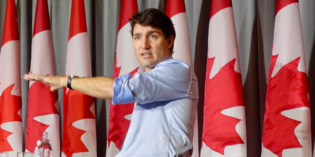
Canada’s 2019 federal election: is the first-past-the-post electoral system broken?
In Canada’s recent federal election, the most popular party by vote share, the Conservative Party, did not gain the most seats in parliament and smaller parties also lost out, to the benefit of Justin Trudeau’s Liberal Party, who will form a minority government. Chris Stafford assesses what this means for the country’s on-going debate on electoral reform.

Requiring voter ID in British elections suggests the government is adopting US ‘voter suppression’ tactics
This week’s Queen’s Speech revived proposals to introduce photographic ID requirements for voting in British elections. The Democratic Audit team assess the available evidence on the likely consequence of such a measure, and consider whether the legislation tackles the right priorities for improving our elections on which there is consensus, or suggests moves to enhance Tory election chances via excluding voters presumed unfavourable to them.

Whatever happened to the Westminster Model? The ‘Italianisation’ of British politics
The UK was once viewed by political scientists as embodying a distinct majoritarian form of politics – the ‘Westminster Model’ – that stood in contrast to the ‘consensus’ democracies found elsewhere in Europe. Several of the countries in the latter group, such as Italy, were often assumed to be inherently prone to instability in comparison to the UK. Yet as Martin J. Bull explains, politics in Westminster now has some striking similarities with the Italian approach that once invited scorn from British observers.

Why do ‘niche parties’ perform so well in European and subnational elections?
Single-issue parties, such as the Brexit Party and Greens, tend to do better in local and European elections across Europe. Emmy Lindstam examines why, and finds that voters are willing to vote switch on an issue they think is overlooked by their preferred party, particularly if they think the stakes are low for that election.
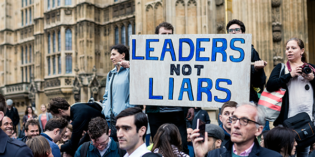
It’s time to change election campaign law to stop politicians lying
How do you ensure that political campaigns don’t rely on lies and misinformation? James Organ proposes changing election campaign law to prohibit knowingly false political statements by campaigners, and suggests that involving voters, via a citizens’ assembly, could be one way to ensure the quality of political information improves in any referendum.
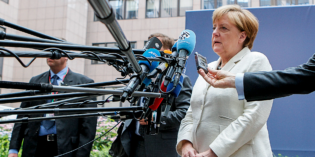
Leader evaluations and electoral participation: the personalisation of voter turnout?
We know that voters identify less with political parties than they used to, and that politics has become more personalised. What effect has this had on turnout? Frederico Ferreira da Silva, Diego Garzia and Andrea de Angelis test the effect of voters’ identification with political leaders on turnout in 13 West European countries and find that the personal identification with a leader increases turnout, and that this pattern has increased over time and also depends on voters’ patterns of media consumption.
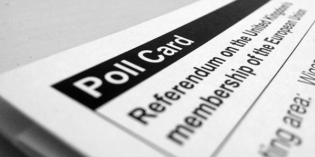
Do populist-leaning citizens support direct democracy?
Populist parties across Europe often support direct democracy, for example through frequent referendums. Do their voters support these initiatives too and why? Tina Freyburg, Robert Huber and Steffen Mohrenberg distinguish between citizens who support direct democracy as a way of giving power to ‘the people’ and those, known as stealth democrats, who do so out of a scepticism that politicians can be effective. They find that both sets of attitudes independently are associated with support for direct democracy, and argue that the distinction is crucial to furthering the debate about populism in Europe.
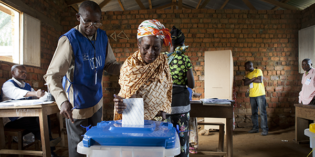
How increasing civic participation reshaped the democratic space during Congo’s 2018 elections
The long-delayed elections in Congo at the end of 2018 brought to an end the presidency of Joseph Kabila after 18 years, though there was evidence of widespread electoral irregularities and fraud. However, Koen Vlassenroot, Godefroid Muzalia, Emery Mudinga and Aymar Nyenyezi Bisoka found that there were positive signs of growing civic engagement and democratic participation during these elections, despite ongoing problems with the militarisation of Congolese politics.
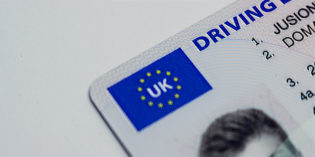
Five things we have learnt about England’s voter ID trials in May’s local elections
The Cabinet Office and Electoral Commission have published their evaluations of the voter ID trials that were held during this May’s local elections. Michela Palese assesses what we have learnt from them, and what concerns remain.

Do early elections provide a financial advantage for parties in power?
If parties in power have the discretion to call an election when they wish, rather than being restricted to fixed electoral terms, do they have an advantage in terms of raising campaign funds? Looking at the case of Denmark, Lasse Aaskoven finds that they do, which could have implications for the UK, and its rules about electoral terms.


 Democratic Audit's core funding is provided by the Joseph Rowntree Charitable Trust. Additional funding is provided by the London School of Economics.
Democratic Audit's core funding is provided by the Joseph Rowntree Charitable Trust. Additional funding is provided by the London School of Economics.